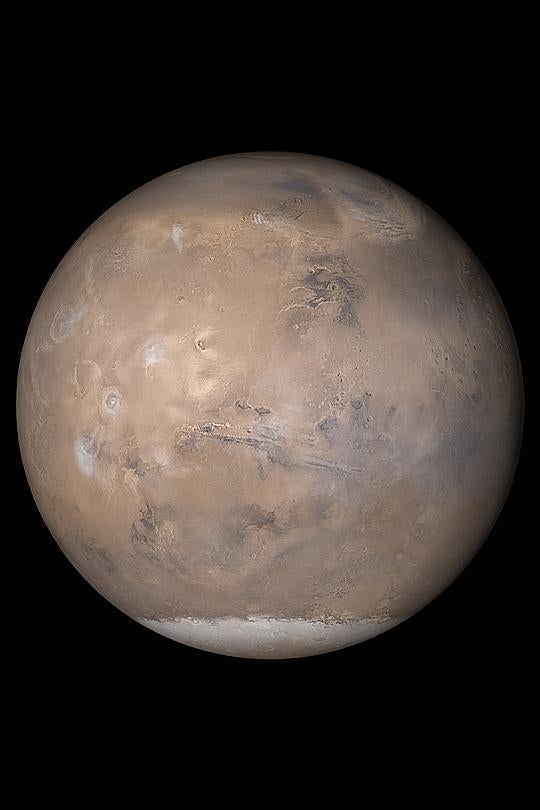The Independent's journalism is supported by our readers. When you purchase through links on our site, we may earn commission.
Early Martian life might have gone extinct due to climate change
Ancient methane spewing microbes could explain the evolution of Mars, and some of the strange signals scientist see in the Red Planet to this day

Mars could have played host to methane spewing microbes in the planet’s early days, scientists say, with the microbes thriving to the point of altering the Martian climate.
In a paper published Monday in the journal Nature Astronomy, a team of French and US researchers argue Mars could have hosted microbes in its crust similar to the hydrogenotrophic bacteria found on Earth. These terrestrial bacteria consume hydrogen and expel methane gas waste, and were among the first organisms to live in Earth’s primordial oceans.
“Mars’ crust may have provided a favourable environment for microbial life. The porous brine-saturated regolith would have created a physical space sheltered from ultraviolet and cosmic radiation,” the researchers note in the paper, adding that the amount of microbes produced on early Mars “could have been as high as in the early Earth’s oceans.”
The researchers used climate modeling to explore the potential habitability of Mars for hydrogenotrophs during the Noachian, a geological period on Mars running from about 4.1 to 3.7 billion years ago when the Red Planet may have had abundant surface water and less surface ice.
That modeling suggested hydrogenotrophs could have thrived in the soil, but that presents a catch — even though the microbes would have been expelling methane, a greenhouse gas, they would have been eating hydrogen, which also has a warming effect. In as little as 100,000 to 500,000 years, the bacterial activity could have changed the Martian climate, creating a cooling effect that may have driven global average temperatures from around 60 degrees Fahrenheit to 10 degrees below zero.
This cool would have in turn created more ice, driving the microbes further underground.
It’s a very different story than on the early Earth, where hydrogenotrophs actually helped maintain the global temperature.
The key difference was in the initial atmospheric conditions, the researchers notes. On Mars, with its carbon dioxide dominated atmosphere, hydrogen was a stronger greenhouse gas than methane, whereas in Earth’s nitrogen dominated atmosphere, methane was a stronger greenhouse gas.
Could any of the ancient hydrogenotrophic microbes on Mars still exist there, deep in its crust? The researchers argue it’s possible, and that, “the best validation of our predictions would come from the discovery on present-day Mars of methanogenic life descending from the early metabolism modelled here.”
But such lifeforms would likely have had to transition away from consuming hydrogen, perhaps evolving into extremophiles subsisting on chemical reactions —chemotrophs — or the byproducts of radioactive decay beneath the Martian surface.
“Deep chemotrophic ecosystems exist on Earth,” the researchers write in the paper. “An extant ecosystem on modern Mars might be of that kind.”
Moreover, they note, these descendants of early hydrogenotrophs might still expel methane waste gas, which would explain the strange, intermittent measurements of methane gas in the Martian atmosphere observed by scientists.
Scientists may get their answer to such questions within the decade.
Nasa’s Perseverance Rover is currently collecting samples of Martian rock and regolith and caching them for later pick. Nasa and the European Space Agencys’ Mars Sample Return Mission will collect those samples and bring them to Earth for study in cutting edge laboratories equipped to answer once and for all the question of whether there is, or ever has been, life on Mars.
Join our commenting forum
Join thought-provoking conversations, follow other Independent readers and see their replies
Comments